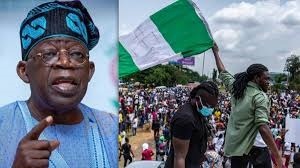Lawmakers Flee Abroad Ahead of Nationwide Protests: Who Protects the People?
As Nigeria prepares for the August 1 nationwide protests against worsening economic hardship, reports suggest that several lawmakers, senators, and political elites are quietly leaving the country. While the official excuse is “medical checkups” and “summer holidays,” many insiders admit that the real reason is fear of public backlash and insecurity during the demonstrations.
The National Assembly reportedly shut down its chambers earlier than scheduled, allowing members time to secure visas and make travel arrangements. Some politicians have already flown to destinations such as Ghana, South Africa, Turkey, the UK, and the US, citing safety concerns. The move has raised serious questions about leadership, accountability, and the plight of ordinary citizens left behind.
Lawmakers Fear a Repeat of #EndSARS
According to sources, many lawmakers remain haunted by memories of the 2020 #EndSARS protests. During that period, politicians’ homes and properties were vandalized, and several public officials became targets of angry mobs. A senator who spoke anonymously told reporters that unlike governors, ministers, or the presidency, lawmakers lack strong personal security and are therefore “more vulnerable” to public anger.
The senator said: “We were scheduled to adjourn for our annual recess next week, but during a closed-door session, many lawmakers raised fears about potential attacks. We appealed to the leadership to bring forward the adjournment date. Those of us who can afford it are leaving until things calm down. President Tinubu is protected, governors are protected, ministers have security, but we have no such safety nets.”
Tickets on High Demand as Politicians Flee
At the Nnamdi Azikiwe International Airport in Abuja, a travel agent confirmed to Daily Sun that emergency flight bookings have skyrocketed in recent days. The agent disclosed that several National Assembly members had booked flights to the US, UK, South Africa, Turkey, and Egypt. Some even opted for nearby countries like Ghana to wait out the protests.
“Summer tickets have nearly doubled because of the sudden demand from government officials,” the travel agent revealed. “A return ticket to the United States for one senator cost almost $3,000. The UK and South Africa are the hottest destinations. One senator joked that he was leaving Nigeria just to ‘save his head.’ But from the look on his face, it was no joke at all.”
Public Outrage Over Political Evasion
The decision of public officials to flee at a time when Nigerians face high inflation, fuel price hikes, and insecurity has sparked outrage. Critics argue that political leaders, who should be addressing citizens’ grievances, are instead prioritizing their personal safety. This reflects a widening disconnect between the ruling class and ordinary Nigerians who cannot afford the luxury of “escaping abroad.”
For context, food prices have reached record highs in 2025, while unemployment remains a major concern. University students preparing for exams and admission screenings are equally anxious, with fears that prolonged unrest could affect academic calendars. For more on this, see our report on Education challenges in Nigeria.
Campus and Youth Voices
Youths, who were at the forefront of the #EndSARS protests, are expected to play a major role in the August demonstrations. Many students have expressed frustration on social media, questioning why politicians can run abroad while they remain exposed to hardship and poor governance. In our Campus Life section, we’ve captured stories of young Nigerians struggling with rising tuition, poor infrastructure, and uncertainty about their future.
Health Risks and Unattended Needs
Beyond security, the protests also highlight Nigeria’s fragile healthcare system. Ironically, while politicians cite “medical checkups” abroad, millions of Nigerians lack access to basic healthcare services at home. This “medical tourism” culture among elites continues to undermine efforts to build trust in local hospitals.
Health experts warn that social unrest can also trigger mental stress, trauma, and physical injuries among vulnerable populations. Yet, few measures have been announced to prepare for such risks if the protests turn violent.
Leadership, Trust, and the Road Ahead
The sight of lawmakers fleeing while ordinary citizens brace for hardship raises urgent questions: Who truly represents the people? How can citizens trust leaders who abandon them during critical moments? The protests, whether peaceful or otherwise, are a reflection of accumulated frustration with poor governance, corruption, and lack of accountability.
For the presidency and security agencies, the challenge will be balancing the right to protest with maintaining law and order. But for ordinary Nigerians, the real battle lies in demanding genuine reforms that improve daily life — from the economy to healthcare and education.
Conclusion
As August 1 approaches, Nigeria finds itself at a crossroads. The flight of lawmakers underscores the growing gulf between leaders and the led. While politicians retreat to foreign safe havens, citizens remain to face the storm of economic hardship and social unrest. The question remains: will the protests bring about meaningful change, or simply deepen the cycle of distrust?
For official updates, visit the National Universities Commission (NUC) and the National Assembly portal. Stay tuned to Alphayem for continuous coverage.

